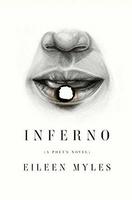Dante Alighieri

photo credits: Wikimedia Commons
Dante Alighieri (Italian: [ˈdante aliˈɡjɛːri]; c. 1265 – 14 September 1321), most likely baptized Durante di Alighiero degli Alighieri and often referred to as Dante (English: , US: ), was an Italian poet, writer, and philosopher. His Divine Comedy, originally called Comedìa (modern Italian: Commedia) and later christened Divina by Giovanni Boccaccio, is widely considered one of the most important poems of the Middle Ages and the greatest literary work in the Italian language.Dante is known for establishing the use of the vernacular in literature at a time when most poetry was written in Latin, which was accessible only to educated readers. His De vulgari eloquentia (On Eloquence in the Vernacular) was one of the first scholarly defenses of the vernacular. His use of the Florentine dialect for works such as The New Life (1295) and Divine Comedy helped establish the modern-day standardized Italian language. By writing his poem in the Italian vernacular rather than in Latin, Dante influenced the course of literary development, making Italian the literary language in western Europe for several centuries. His work set a precedent that important Italian writers such as Petrarch and Boccaccio would later follow. Dante was instrumental in establishing the literature of Italy, and is considered to be among the country's national poets and the Western world's greatest literary icons. His depictions of Hell, Purgatory, and Heaven provided inspiration for the larger body of Western art and literature. He influenced English writers such as Geoffrey Chaucer, John Milton, and Alfred Tennyson, among many others. In addition, the first use of the interlocking three-line rhyme scheme, or the terza rima, is attributed to him. He is described as the "father" of the Italian language, and in Italy he is often referred to as il Sommo Poeta ("the Supreme Poet"). Dante, Petrarch, and Boccaccio are also called the tre corone ("three crowns") of Italian literature. Source: Wikipedia (en)
Authors influenced by Dante Alighieri 17
Human - wd:Q1067





















